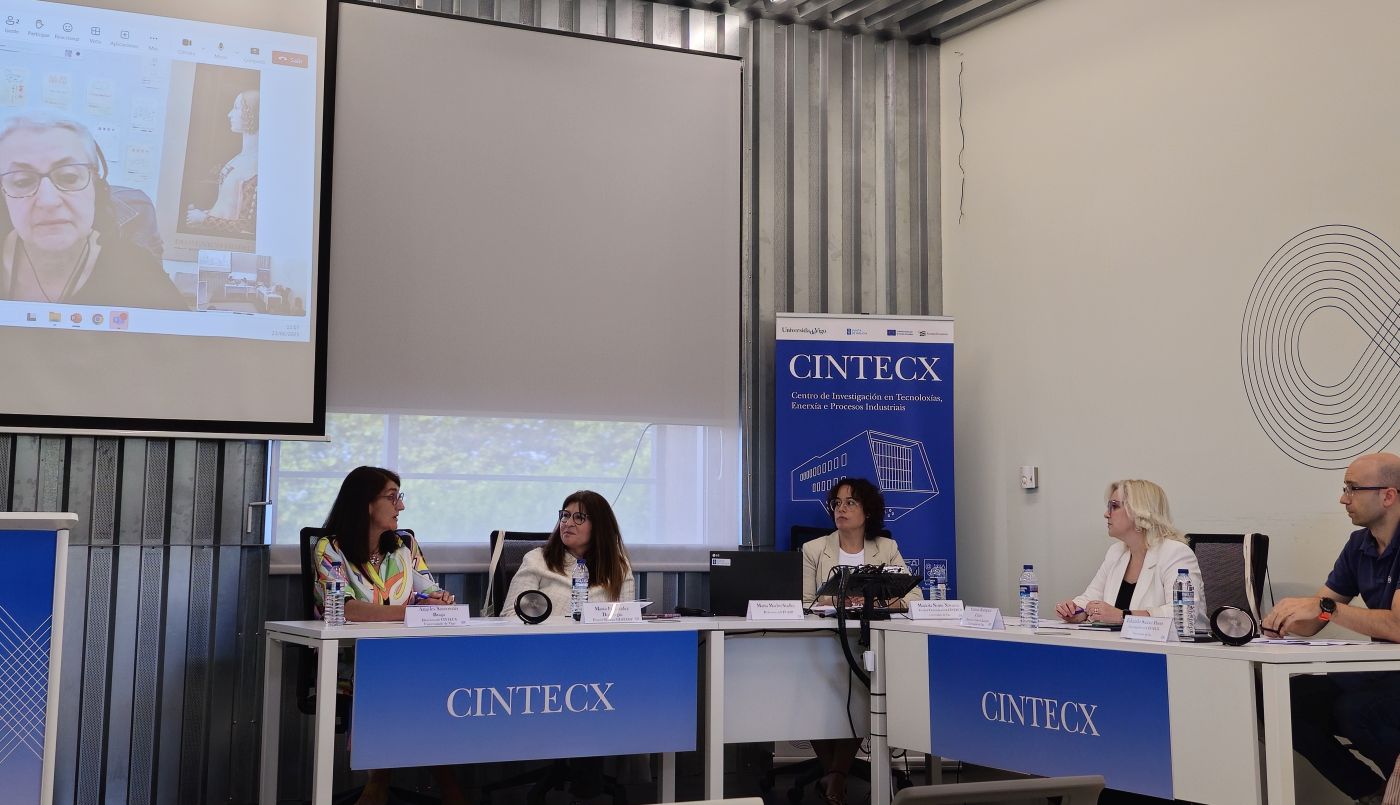Coinciding with June 23, International Women in Engineering Day, the Research Center for Technologies, Energy and Industrial Processes (Cintecx) at the University of Vigo held the event ‘Why Are There So Few Women in Engineering?’ this Monday. The gathering brought together experts from academia, industry, and gender equality fields to analyze the causes and possible solutions to the low female representation in this professional area.
Among the main conclusions, participants emphasized the need to act from early stages to address differences in perceived abilities between boys and girls—especially in subjects like mathematics and science; to focus on men, encouraging them to actively engage in change and take responsibility for cultural transformation; and to work on effective communication, using channels such as social media to deliver clear, direct messages with relatable role models that bring engineering closer to young women.
Another major concern raised was the need to combat resistance to change by identifying current reluctance toward equality policies and working to ensure that the progress achieved is not reversed.
Girls consider themselves less brilliant than boys from the age of six
The event was opened by the center’s director, Professor Ángeles Sanromán, who highlighted the importance of creating spaces for dialogue that promote change toward a more inclusive engineering field.
The first speaker was Marta Macho Stadler, a professor at the University of the Basque Country and a renowned science communicator, who joined remotely with her talk ‘Women in Engineering: Mission Impossible?’ She addressed the gender stereotypes that still persist in the scientific and technical fields and how these influence the choice of studies and careers. She explained that, in the case of industrial engineering degrees, there has been little significant progress, with female enrollment remaining stagnant. She also warned that girls begin to see themselves as less brilliant than boys from the age of six, which affects their academic decisions, according to a recent study published in Nature.
Social media as an ‘ally’ to bring engineering closer to young women
Next, Marta Fernández Docampo, project manager at Gestamp Vigo and representative of the Official Association of Industrial Engineers of Galicia (ICOIIG), gave a talk titled ‘Ambitious Destination, Steady Steps: The Roadmap to Change’, in which she shared her personal experience in a highly male-dominated sector. Throughout her career, she said, she has had to constantly prove her technical competence—something that is often assumed in her male colleagues. Fernández stressed the importance of using channels like social media to bring engineering closer to young women, with direct messages and relatable role models.
The importance of early intervention
The subsequent roundtable, moderated by Mariola Norte Navarro, communications and equality liaison at Cintecx, brought together diverse voices. Eduardo Suárez Porto, a researcher at Cintecx, highlighted data from various studies showing that women often need more information and external validation to choose technical careers and that they perceive engineering as particularly difficult. He also warned of growing resistance to equality policies.
Yolanda Rodríguez Castro, director of the Equality Unit at the University of Vigo, emphasized that gender differences are imposed from birth, making early intervention essential. In this vein, Marta Macho proposed a shift in focus: “It’s important to stop telling girls what they should do and start focusing on boys, because change also lies with them.” Marta Fernández also stressed the importance of not allowing setbacks in the progress made and of ensuring that women’s voices are heard. Ángeles Sanromán closed the roundtable by highlighting the need to transform society from the ground up, starting with an equitable distribution of responsibilities within the family.

